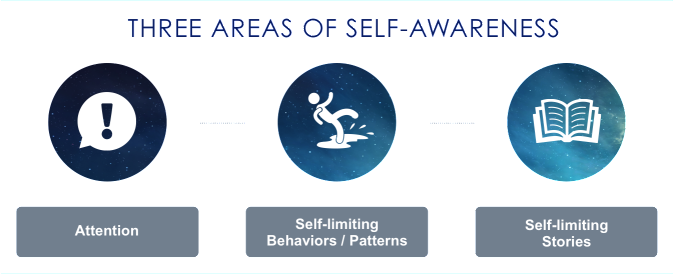The following is an excerpt from my book, Coach Your Self Up.
As we’ve noted, I believe the best thing you can do to drive your career success is to commit to your ongoing personal development—to deepen your self-awareness in pursuit of becoming a version of yourself that you aspire to be.
You can’t stumble your way in the dark to your best self. You need to turn on the light. (I heard this phrase from a fellow Coach Your Self Up facilitator Pete Small—and I instantly took to it.)
We have known for a long time that self-awareness is important. The phrase “know thyself” dates back to one of the Seven Sages of Ancient Greece, Thales of Miletus[1]—around 2,500 years ago!
Businesses recognize the value of self-awareness as evidenced by their investment in leadership development programs and executive coaching engagements—both of which typically emphasize increasing self-awareness.
Coach Your Self Up makes this key aspect of leadership development available more broadly, well beyond the leadership suite. If we know that self-awareness plays such a pivotal part in being a successful leader in the workplace, why not start helping all employees in this arena much earlier in their careers?
There are additional more recent workplace trends that are shining a spotlight on the value of self-awareness. Here are just a few:
- Emotional Intelligence (EQ) includes self-awareness as a core pillar.
- Mindfulness places an emphasis on being self-aware in the present moment. (While the concept of mindfulness is thousands of years old, it has only recently begun to become more mainstream.)
- Conscious Capitalism and other flavors of Conscious Business pay homage to the importance and value of having “conscious” leaders and employees.
You can’t stumble your way in the dark to your best self.
You need to turn on the light.
The realm of self-awareness is enormous. For our work, we will emphasize three primary areas.
The first area is your attention—what you focus on and how well you maintain that focus. You are no doubt aware that your attention is constantly under attack by myriad information streams in our digital era, not to mention the many and various items on your internal “to do” list screaming to be heard. Learning to “take back” your attention—first by “paying attention to your attention,” and then by learning to better harness and direct it—is instrumental to this work.
The second area is your self-limiting behaviors—things that you do (or don’t do) that limit your success. You may be aware of one or more of your self-limiting behaviors (“Omg, I can’t believe I just interrupted again, why can’t I just stop doing that?”), or maybe they live in your blind spot. You will learn how to make sustainable shifts to these behaviors, even those that have been with you for years or even decades.
The third area is your self-limiting stories—thoughts that you have that limit your success. Stories (e.g., assumptions, opinions, conclusions, beliefs) are everywhere and many of us don’t see them. An important part of Coach Your Self Up is helping you to see the sea of stories that you are swimming in and giving you simple ways to bust through stories that are getting in your way.
[1]Richard E. Boyatzis (2007), Interpersonal Aesthetics: Emotional and Social Intelligence Competencies are Wisdom.In Eric H. Kessler (ed.) and James R. Bailey (ed.)Handbook of Organizational and Managerial Wisdom (pp 223-242). Thousand Oaks, CA: Sage.
